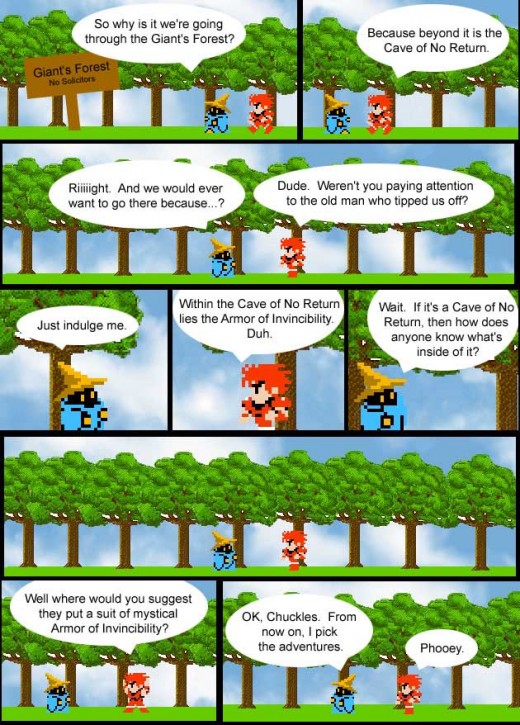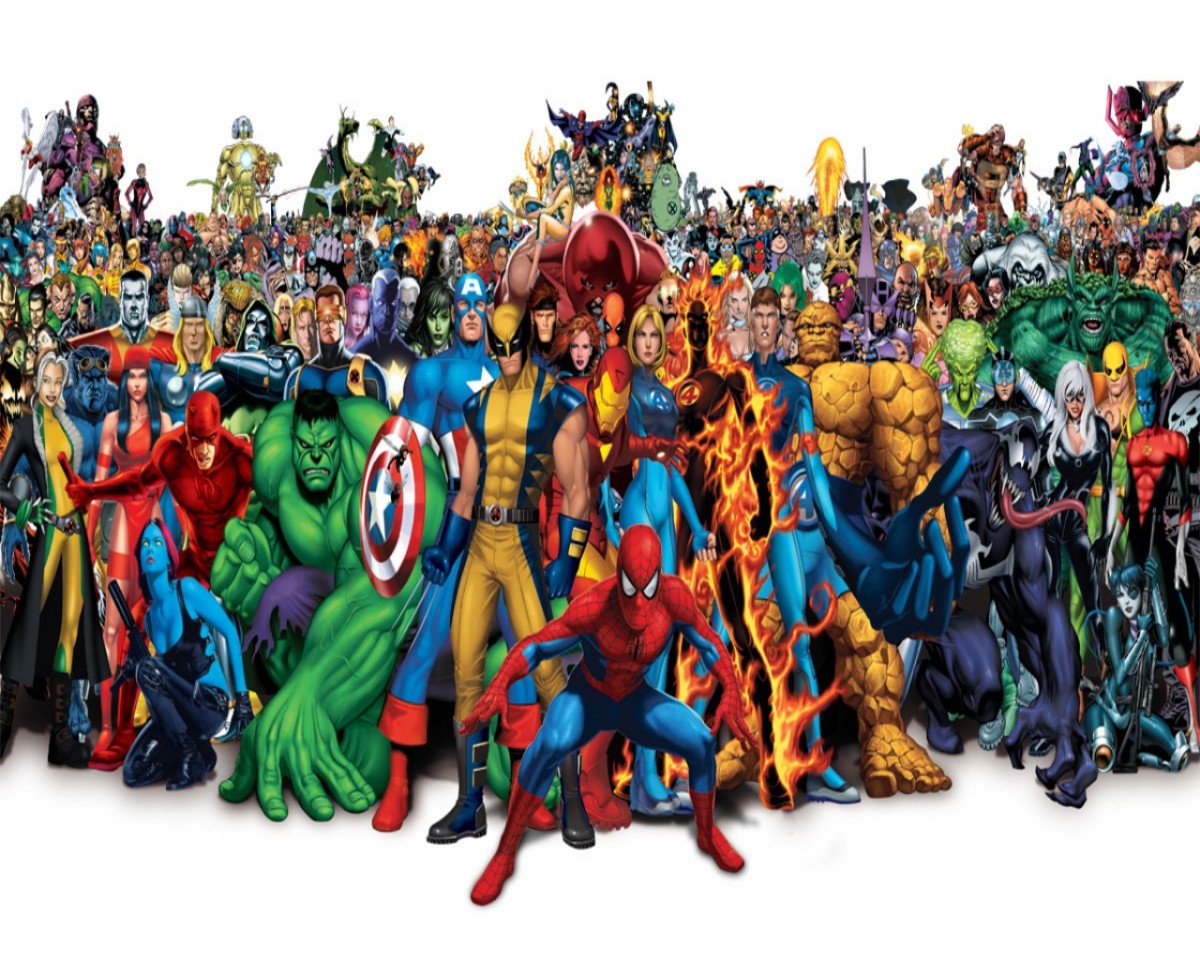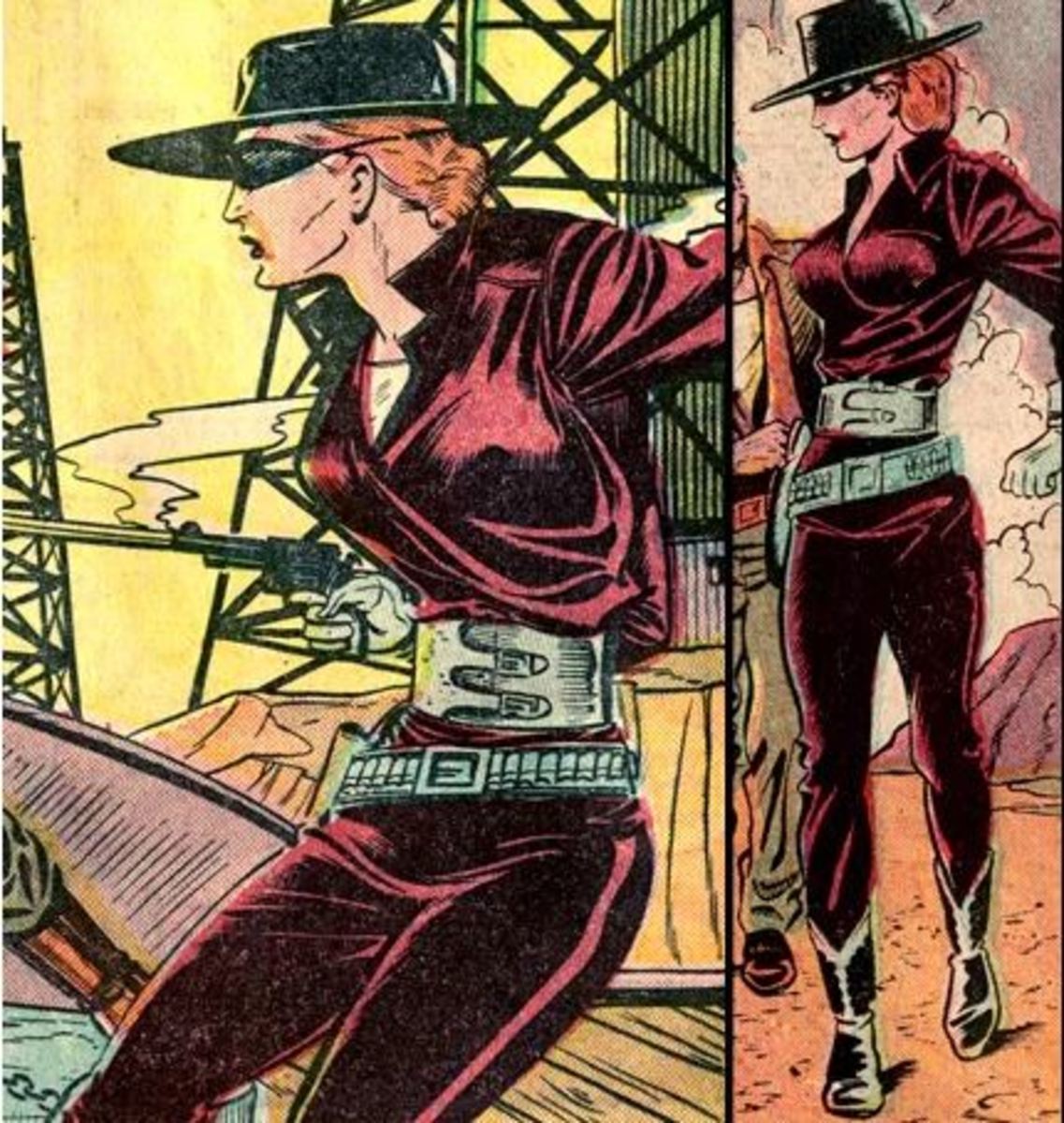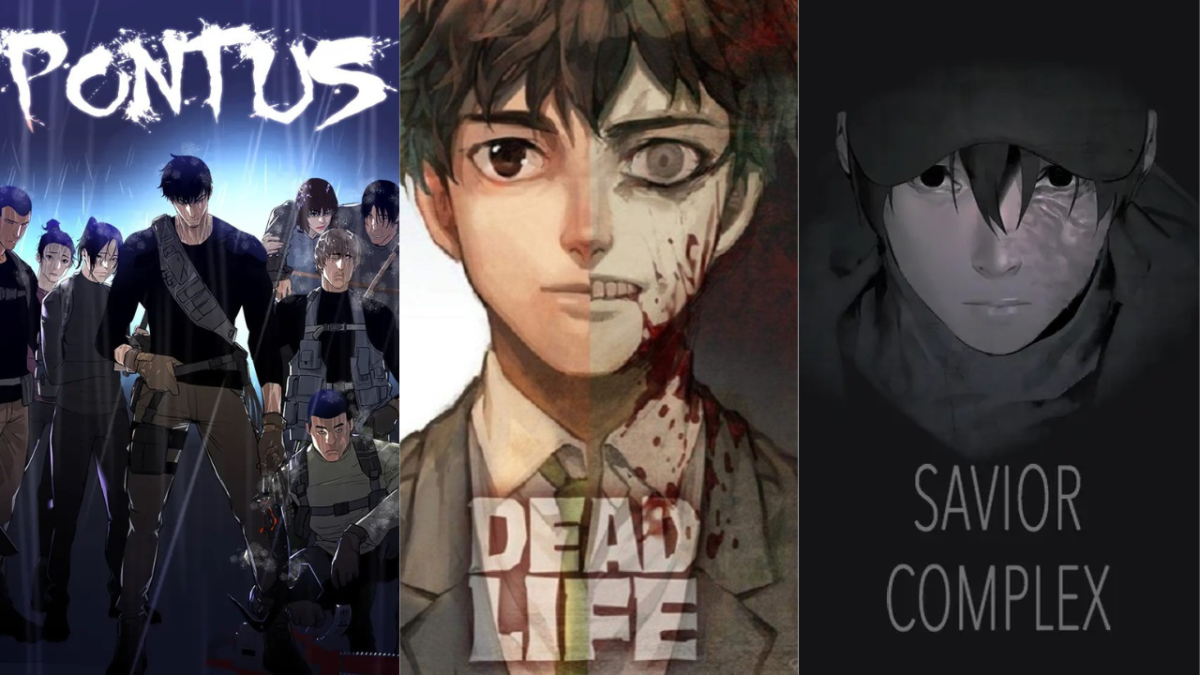Web Comics: The Road to Fame and Fortune
Intro
Go to any forum of your choosing and post this topic in the general discussions section: Your Favorite Web comic.
Almost everyone who replies will either have a favorite web comic or an opinion about web comics. Some may post links. Others will ask, “What's a Web Comic?” If they do, direct them to this hub please.
What's a Web Comic?
Put simply, a web comic is a comic that the artist has decided to place on what was once colloquially referred to as the “web”, or the Internet.
Back in the days when the Internet was fairly new and still being introduced to schools and free AOL discs were a dime-a-dozen you could probably have counted the number of web comics on your hand. But with the success of artists like Pete Abrams, Fred Gallagher and Mike Schwank and Ron Kauflersch the number has increased exponentially as young artists compete to have their work become internationally known.
Because of the relatively free and versatile nature of the Internet, where anyone and everyone can post a website with a little know-how (or a best friend who knows how)it seems that all a person needs is a sketch book, some pencils, a scanner and a computer.
Ratings? Who Needs 'em? And the Comic Code can Ciss My C--
Another advantage the Internet has over mainstream publishing is the relative lack of quality control. In most areas the bar is set very low in terms of what you are allowed to publish and read without getting into legal trouble and web comic artists toe that line every day.
Whereas syndicated comic strips have to be “family friendly” or at the very least coy, the characters in a web comic can drink, drive, mercilessly kill people, walk around in all their naked glory and perform sexual acts that would make the most active porn stars blush or just sit in front of a computer all day and never go to work. (As long as children aren't involved in those sexual acts, of course. That bar I was referring to? That's where it's been set. Other then that the sky is the limit.)
Different Types of Web Comic
For the most part web comics have some very basic themes that tie them together. Running social commentaries, parodies and spoofs, talking animals and violence. Cartoonish violence for the most part, but violence nonetheless.
However, like books, movies and video games, web comics also have a number of genres, sub genres and styles that make it easier for you to say, “I prefer this type over that type”. Here are a few.
Sprite Comics
Sprite Comics were pretty popular back in the early days of web comics. A cut and paste job for the most part, these comics use two dimensional characters similar to the graphics you would find in the early Nintendo and Sega games.
http://www.nuklearpower.com/2001/03/02/episode-001-were-going-where/
8-Bit Theater is one of the most popular examples of a Sprite Comic. Using characters from the original Final Fantasy Nintendo game, writerBrian Clevinger actually won the Web Cartoonists' Choice Awards for the best gaming comic in 2002. http://www.ccawards.com/2002.htm
http://www.bobandgeorge.com/archives/000401
Bob and George is another Sprite Comic featuring Capcom's Megaman characters. Like 8-bit theater, many people were using the same characters in their own sprite comics, but were riding mostly on the success of the artists who had “pioneered” the format. (IE: Many of Megaman based comics included Megaman getting sick from drinking too much beer.)
Strip Comics
Relax. These are just comics that are done in the classic “syndicated newspaper” format. Some of these are daily strips, others are done randomly in accordance with the artist's schedule.
Sluggy Freelance, by Pete Abrams is one of the longest running daily comics online beginning in 1997 and averaging over 100,000 readers every day. (^ Walker, Leslie (June 16, 2005). "Comics Looking to Spread A Little Laughter on the Web". The Washington Post, p. D1 )
And for those who like a slightly more R-rated feel to their comics, www.goats.com by Jonathan Rosenberg has had about the same run, (9-10 years) but is geared to a much more mature audience.
Manga
These are webcomics that are largely inspired by Japanese Manga. Sometimes using the standard 4-panel format, manga style webcomics are popular among young artists due to the success of comics like Megatokyo and Angels2200.
Sprite Comics

Sluggy The Animated Tribute
The Men and Women Behind the Scenes
Probably the most crucial part of any web based comic is the artist themselves. Like all your favorite movies and TV shows, the web comic wouldn't be put together without a lot of hard work and devotion from the artist and their family and friends.
This is one of the aspects that seem to elude a lot of people who think that the web comic is their key to financial freedom.
Don't Quit Your Day Job
Pete Abrams, creator of Sluggy Freelance went to Joe Kubert's School of Graphic Design but even after he graduated he wasn't able to get his start in comics just yet. He worked as a web page designer for a marketing firm and began doing Sluggy Freelance as a creative outlet.
He is one of the first people to make a full time living out of writing a web comic.
Michigan resident Fred Gallagher, a gamer at heart, spent his nine-to-five days as an architect, drawing building plans. He uses the skills he learned as an architect in many of the drawings of Toyko an other buildings where the characters of Megatokyo interact.
Unlike Abrams, however, Fred didn't start out wanting to become a web comic artist. The story goes that his friend, Rodney Caston thought his drawings were very skillful and after months of begging him to collaborate on a web comic project, Fred finally gave in and did a few strips just to shut him up. This was in August of 2000.
After a few short months Megatokyo's readers grew but due to creative differences, Fred paid Rodney a settlement and bought the complete rights to Megatokyo. Even then it wasn't until October of 2002 when Fred was laid off from his job that he began focusing on Megatokyo full time.
The Lonliest Vampire - Haynes Films
Mitsabi's Dream - Haynes Films
Relationships
Fred Gallagher based many of his characters on real life people.
The comic's title character Piro is an idealized version of Fred, whereas Largo is based on Megatokyo's co-creator, Rodney Caston. Dom and Ed, black ops agents for the fictionalized versions of Sega and Sony are each based on people who have regularly assisted Gallagher in maintaining the website and forums over the years. And of course Seraphim, Piro's “Conscience” is based on Fred's real life wife Sarah another essential part of his team both with the comic and in his life.
Although the comic itself is the product of it's creator, the success of the webcomic is no different than any other creative endeavor.
Peter Haynes, filmmaker and creator of Angels2200, has cast his wife in a number of short films, including:
Mitsabi's Dream : The film prequel to the webcomic and The Loneliest Vampire ~ A brief but charming musical look at the vampire world.
Mike Krauhulik of Penny Arcade actually proposed to his wife in A Very Special Penny Arcade:
http://www.penny-arcade.com/comic/1999/02/17/
Captain Greyhound, http://captaingreyhound.comicgenesis.com/d/20020130.html a short-lived comic with a one year run was canceled after the artist broke up with the real-life inspiration for the title character.
So just remember as you reach for that pencil with the sketchpad in your lap, that as you venture forth down the long road of fame and fortune, the real world is still there and you'll still have to deal with it especially if you want your comic to soar above the dredges.
Why Some Are Successful and others Just Plain Suck
There are really five key points in any web comic that define how well a new artist is going to last and why some of the ones I've mentioned here have all ready enjoyed fame and fortune and the burdens that come with it.
1: Originality.
I can't emphasize this enough. Originality has it's risks, of course, but more often than not the risk is worth it.
Sluggy Freelance is primarily a gag-a-day strip and yet over the thirteen years since it's inception, Pete Abrams has created some of the most in depth characters with story lines that are comparable to J. Michael Strasinsky in terms of complexity and drama. Yet he also manages to stay true to the comical drama of the strip.
2: Good Artwork.
The artists mentioned in this article have all been to school for some variation of artwork, whether it was their college major or a community college course. They have honed their skills daily.
In college, I was one of the guys who read Megatokyo and Sluggy Freelance and thought, “Hey, I can make a webcomic and make millions of dollars too.” My idea was to draw a circle and a square and those would be the characters... I shit you not. That was going to be what “set me apart” from the others. Just rudimentary shapes that would...talk...and do stuff...yeah, I've come a long way since then...I hope.
3: Readers. You have to have readers.
Fred Gallagher is constantly crediting his success to the number of readers. Pete Abrams and Peter Haynes are always thanking and encouraging the people who visit their websites and forums.
If you don't have readers then all you have is a drawing taking up space and collecting dust. You need readers.
4: Homages/networking
Every comic mentioned here pays at least one homage to two or three other comic artists. Because web comic artists do not usually start off making a living from their work, it can be a real compliment when someone like Jerry Holkins and Mike Kraulik of Penny Arcade, allows you to post your website in their links page.
Fred Gallagher credits these artists early on for much of his original fan base and the title characters Tycho and Gabe make a guest appearance in a Megatokyo “filler” strip.
Networking is as important to a web comic artist as it is to any other form of business, only more so since you don't actually see your customers/readers on a day-to-day basis.
5: Time and Effort
If you post one comic and just leave it there someone might look at it. And another person may click on it.
If you post several comics over the course of the month and then suddenly stop posting it you might get a slightly larger number of clicks. These people may come to enjoy the story and will begin e-mailing you asking when you'll update. This may go on for years although you won't know it because for reasons unforeseen, you will not have checked your e-mail nor the status of your comic.
Other times you will make a dedicated effort to your comic. But you'll be doing this while juggling class, work, relationships, and the other things we mentioned above. But ultimately it's the time you spend on the comic that will make or break you.
This doesn't mean that the artist has to post a new comic every day or every week. Heck you don't even need a real schedule. But if you begin attracting readers and this is what you've wanted to do all along you now have a challenge. Keeping those readers, attracting new ones, and keeping your day to day life from crashing and burning.
In the end it's all about how you manage your time and what kind of effort you make to get it done.
In This Economy...
Web Comics have grown into a legitimate medium for today's artists. They provide a way for artists to share their work without the constraints of standards and without the uphill battles associated with publishing.
In this economy there are very few professions that could be called recession proof. Entertainment in all of it's forms is certainly one of those things that will not suffer in any economy because frankly, people will pay to get away from the real world, even if it's just for thirty-minutes or for two hours.
The success of web comics in this current economic climate is easy to see because anyone with an Internet connection can access them for free. With more business using wireless to attract customers anyone can bring their laptop into the library and cruise the archives pages of Sluggy Freelance and Megatokyo for hours without having to pay a single cent.
But the question that's on most young artist's mind is, “Can I make a living from my web comic?”
It's never a good idea to discourage someone with a creative goal, however it's important to point out that no one should ever quit their day job over an idea alone.
The long term rewards of producing a web comic can be a long way in coming and it may be months before a new artist even receives a “Great job” in the comment's section of whatever site he's decided to post on.
Is it worth it? Of course only you can decide that. You certainly have some role models to choose from and if there was ever a time for new and creative stories, it would be now amidst all of the “post apocalyptic lone stranger” and “Vampire” movies.
You could become the next Pete Abrams, or the next Fred Gallagher in a year's time or you could sink into the oblivious caverns of Internet obscurity.
Student Fan Project
- 2000AD British Comics
2000AD comic book featuring classic british comic book characters like Judge Dredd, Rogue Trooper and Slaine. - Web Design - HTML Coding Tutorial - HTML Code
Web Design using HTML is Easy. This hub provides sample code to a comprehensive webpage. This tutorial/walk through teaches to apply the essentials of HTML code. - The 5 Worst Comic Book Series Ever: Terrible Comic B...
Comics books are usually great, but sometimes they can be awful. Read more about the worst comic books of all time! - Comics on iPad
Comics on iPad take full advantage of the Apple tablet. DC Comics Comixology, Panelfly Comics and Marvel Comics all come to life on the Apple tablet. The iPad tablet's vibrant color display and ease of use is the closest thing to reading a comic digi - About Rare Comic Book Art Drawings
About rare comic book art and owning some of great comic book artwork. - Comic Book Creator Guide: Where Do I Begin?!?
The comic book industry shares many commonalities with other forms of entertainment. They are all hard to break into, and starting off hardly makes all the work seem worth it. If youre in the business,... - Information Media In The Era Of Web Data Glut: Mass...
We need to evaluate and interrogate the social, economic, and philosophical meaning of the effects and affects of Technology and Technique on the Web Data on Mass Media and Mass Society, i.e., the Web's... - Creating a web comic
Now a days everything is on the internet. Sure i still read the sunday comics and i often buy comic books (both american and japanese for those wondering which). But it's much easier and cheeper to put your... - Create Your Own Web Comic
Create your own web comic, tips to create your own comic.












